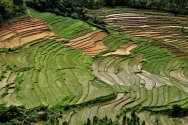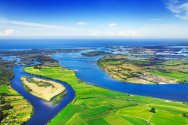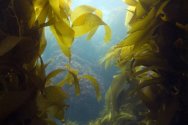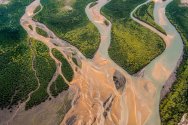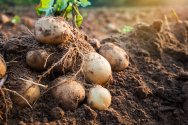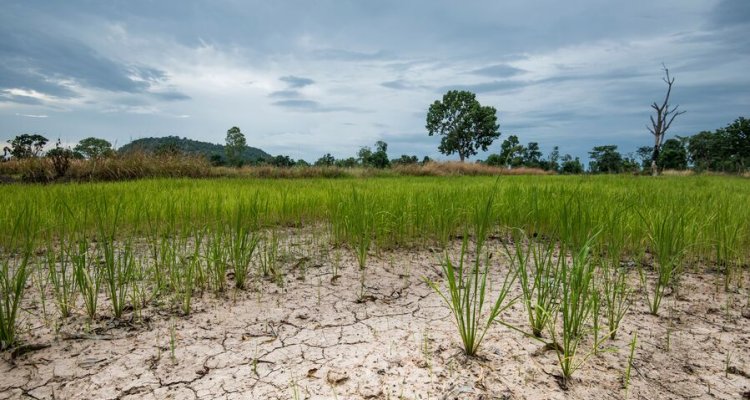
Dossier
Saline agriculture
Salinization, the accumulation of soluble salts in soil and water, poses a growing challenge to food systems worldwide. While salinity is a natural phenomenon in some places, climate change significantly exacerbates its overall progression. Rising sea levels cause saltwater to infiltrate further inland, and higher temperatures increase soil evaporation, leaving behind salt residues that accumulate over time. Human activities – for instance, poor irrigation and drainage practices, excessive groundwater extraction, and increasing conversion of natural landscapes into agricultural lands – further trigger salt concentration in soils and ground and surface water.
The impact of salinization on agriculture is profound and poses serious challenges to food production and security. As salinity levels rise, soils lose their fertility, leading to stunted crop growth, reduced yields, and even the loss of arable land. In addition these direct impacts on agriculture, salinization also degrades water quality, disrupts ecosystems, and contributes to desertification and biodiversity loss, compounding the challenges of sustaining agricultural production in affected areas.
Saline agriculture, or salt-tolerant farming, represents a promising strategy to harness the productive potential of saline environments. Approaches include the cultivation of salt-tolerant crops, soil management techniques, and irrigation management methods. Incorporation of such measures can, in addition to mitigating the adverse effects of salinization, also reduce reliance on freshwater resources and enhance the resilience of agricultural landscapes. Saline agriculture may, therefore, be a viable pathway to enhance food security at a local, regional or even global scale.
Publications
National
-
Knowledge gaps on how to adapt crop production under changing saline circumstances in the Netherlands
Science of the Total Environment (2024), Volume: 915 - ISSN 0048-9697 -
Saline food systems : reflecting on capacity and knowledge within the Netherlands
Wageningen: Wageningen Environmental Research (Rapport / Wageningen Environmental Research 3077) -
Klimaatrisico’s en kansen in de open teelten
Wageningen: Wageningen Plant Research (Rapport / Wageningen Plant Research WPR-902)
Infographic
International
-
Water management to address salinity in agriculture in Bangladesh
Wageningen: Wageningen Environmental Research -
Climate change risk and low Emission potential for the agricultural sector in Nickerie and Coronie-Saramacca, Suriname
Wageningen: Wageningen Environmental Research (Report / Wageningen Environmental Research 3331) -
Assessing the influence of integrating soil amendment applications with saline water irrigation on Ajwain’s yield and water productivity
Irrigation Science (2022), Volume: 40, Issue: 1 - ISSN 0342-7188 - p. 71-85. -
The significance of farmers’ climate change and salinity perceptions for on-farm adaptation strategies in the south-central coast of Bangladesh
Journal of Agriculture and Food Research (2024), Volume: 16 - ISSN 2666-1543 -
Dealing with the global challenges of salinization : Drivers, challenges and solutions
Wageningen: Wageningen Environmental Research (Rapport / Wageningen Environmental Research 3269)
Videos
- Unfortunately, your cookie settings do not allow videos to be displayed. - check your settings
- Unfortunately, your cookie settings do not allow videos to be displayed. - check your settings
- Unfortunately, your cookie settings do not allow videos to be displayed. - check your settings
